Going Back, Part Six: 163B Marshall Street
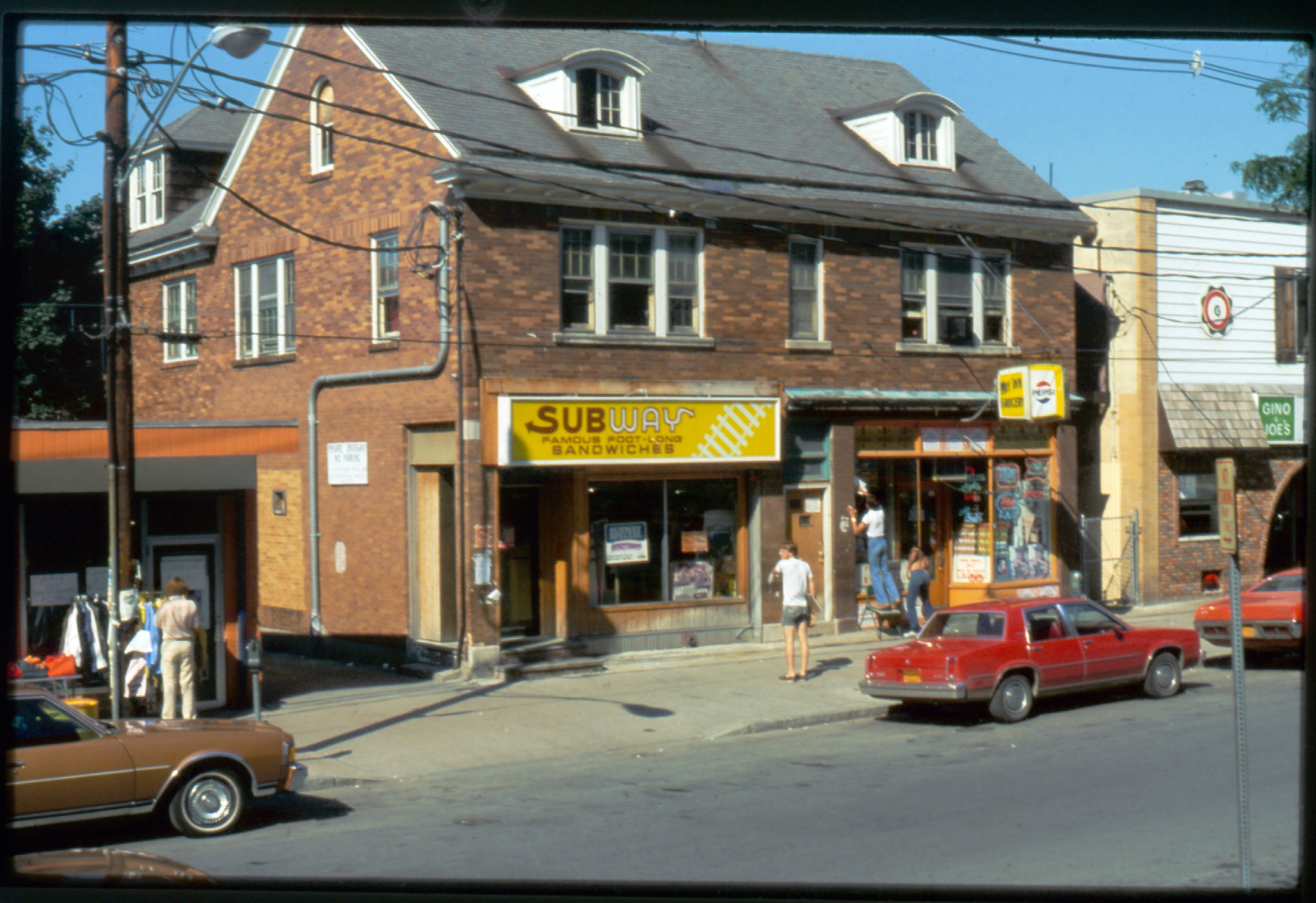
A Quick Note
I just want to express gratitude to everyone who has been reading this account of memories jogged by a recent trip back to Syracuse, where Lee and I met 46 years ago, and where we lived for quite a long time. I didn’t know when we planned the trip that this would be the result – a flood of recall, of emotions that I had long left buried, and perhaps a new perspective gained through the years and a whole bunch of therapy. I appreciate everyone’s comments, public and private, and love the connections, even if they’re sometimes over this grim shared experience of addiction. I marvel that this could help anyone, but apparently it does, and please reach out if you feel compelled to, whether you want help or just want to share.
163A Marshall Street
When it was time to leave The Embassy, we needed a place close to campus (and the bus lines), with room for four of us – Lee, me, my former co-editor (returning from London), and, eventually, my longtime roommate Danny, who would be off in Florence for the first semester. We found a place with apartments above a sandwich shop and a bodega right on SU’s main commercial drag, at 163 Marshall Street – just steps from beer and the bars. Our apartment wouldn’t be available until September, but for the summer, Lee and I were able to sublet the other apartment, sharing it with a guy we already knew. We moved all our belongings by hand, rolling trunks and milk crates on a cheap plastic skateboard up the hill to our new digs.
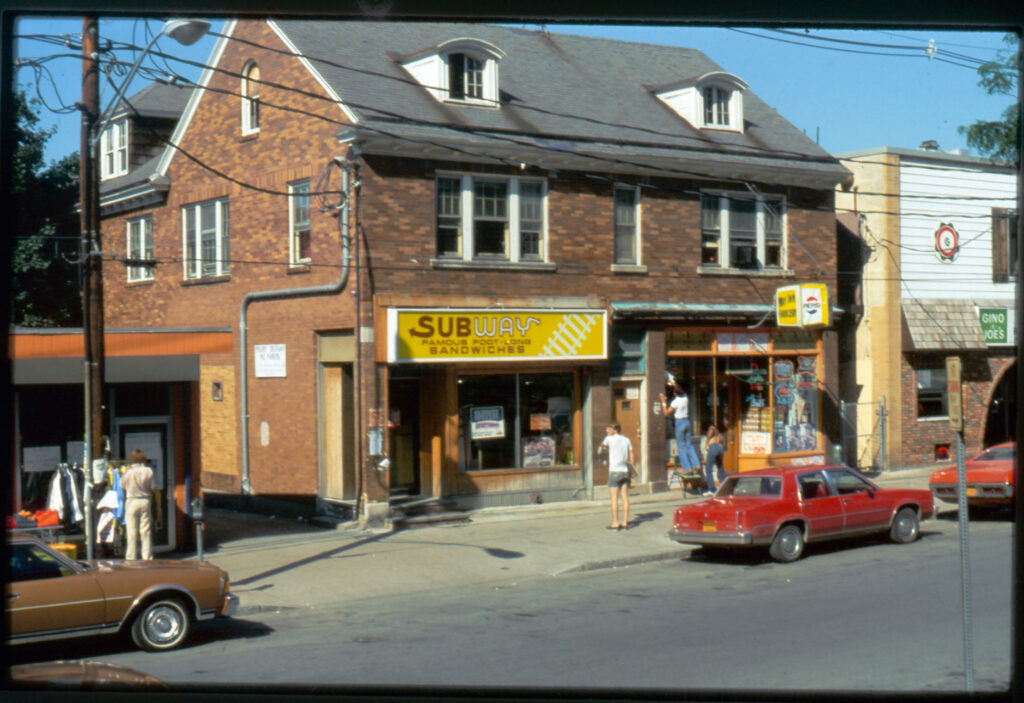
In every regard, that summer of 1981 was the lowest point of my life. I was adrift, having wasted the months in which I was supposed to be figuring out my next move, by no means certain I wanted to return to school, unable to find a way to finish as anything other than a newspaper major. And I was about to lose my love.
There were giant cracks in our relationship, all caused by me, my depression, my addiction. She sat me down for an earnest talk about drugs, which led me to promise to stop. Incredibly, I kept that promise, without faltering.
But I didn’t promise to stop drinking. That would have been impossible. I had tried. I would try many times again, without success, until I had finally had enough – but that was nearly three years away. What little straightening up I did wasn’t enough to save the relationship, and somewhere early in that hot summer, we broke up. We were still living together, and for the most part were genuinely friends. Believe me, I completely saw her point. I didn’t like it, but then, I didn’t like myself.
Now answering to no one for my behavior, I withdrew entirely into myself. With an old lacquered Japanese screen someone had left behind and a bunch of record crates, I built a tiny room within my room, where I set up my stereo and a chair. Completely enclosed, in the dark, I could listen to my records, drink alone, and just wallow.
I listened to four records that whole summer: Black Market Clash, Sandinista, an Eddie Cochran box set, and a single Sleepy Labeef record. It’s a wonder that I still love those all today, because I sure don’t love the summer they came from. I was especially invested in The Clash. The sound was so dark, so broody, so perfectly what I was feeling, my head would just get lost in those echoey dubs. They sounded like being alone.
Remember / To kick it over / No one will guide you / Through Armagideon time.
The Clash version of “Armagideon Time,” originally by Willie Williams

I had completely isolated myself – clearly, now, a sign of depression. Without a relationship for the first time in a few years, I truly didn’t even know what to do with myself. I only had one or two friends left in town that summer. If I left the apartment, it was to go as far as a basement bar behind our building, where I’d get embarrassingly drunk, eat unhealthfully, and play pinball or Pac-Man, all by myself. Then it was always back to my tiny room, drinking in my little box until it was time to crawl over to the bed. I truly didn’t know anything else to do.
With summer coming to an end, there really was no choice but to go back and finish my newspaper degree. The first Reagan budget had gone into effect, gutting a major part of my financial aid – so I’d have to continue working at the printing plant part-time, and would have to take out loans (modest by today’s standards). In order to finish, all I had to do was to grind myself to the bone. I was good at that.
Summer ended. It was time for the wallow to end, too.
163B Marshall Street
I truly don’t know what changed in my brain when we moved across the hall into 163B Marshall Street, but a new semester, a new roommate (my former co-editor returning from a semester abroad), and a new apartment broke the spell of depression that had kept me dark as could be in the hot months of summer. Now, I felt a bit like Roy Scheider playing Bob Fosse in “All That Jazz” – staring into the mirror, forcing a smile. “It’s showtime, folks.”
Miraculously, it worked. Having had a break (and a tremendous wallow), I was suddenly enthusiastic about my classes, which included “Grammar, Rhetoric, and Style” and a history of western music. I was making new friends. Even my drinking improved, considerably. As I turned 21, I felt really good.
Creativity began to flow again. I got onto a monthly publication called “Report,” mostly famous for being outrageous, and tried to refine it into something more humorous or meaningful, or both. I don’t know if I succeeded, but I had an outlet again, and one with much easier deadlines. I started writing voluminously again. For the first time ever, I even enjoyed writing for classes.
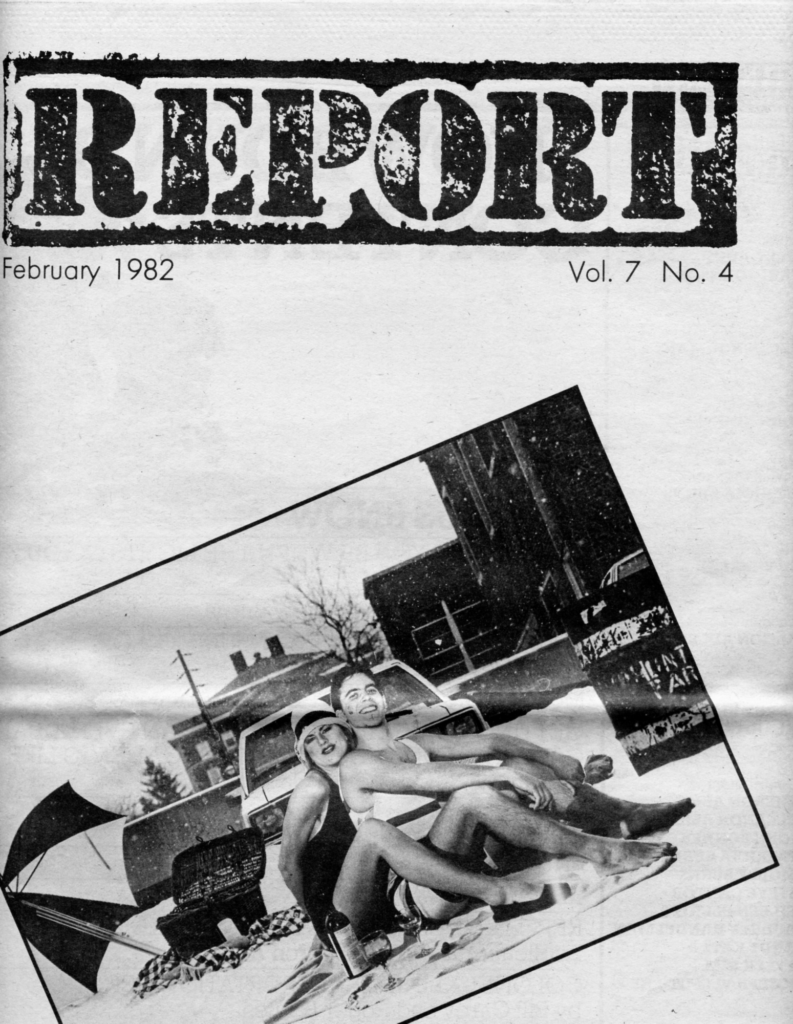
Feeling good about myself, I even lightly pursued new relationships, but I hadn’t given up entirely on Lee. Life was not drama free, and I continue to apologize to our unfortunate third roommate who didn’t know she’d be dropping into a dynamic where Lee and I were living together but not being together. The fall semester was bumpy – we were friends but we were fighting, we were talking, then we weren’t – and it can’t have been fun to have been around.
New Year, New Us
Calendar year 1981 came to an end. My mother had recently given me her car – a reaction to someone having been murdered at my bus stop, which for a while sent me way out of my way to avoid walking through that neighborhood – and I had newfound mobility. Invited to join a friend for several days at her parents’ house on Long Island, plus what promised to be an epic New Year’s Eve celebration in a suite at Marriott’s Essex House with her friends, I made my first drive into the metro area. I had a fun time until, after a semester of relatively good behavior, alcoholically speaking, I made a fool of myself on the big night. I drank like an amateur, vomiting embarrassingly in the lobby bathroom before the night had even begun. I recovered, though, and got through the Times Square experience (which never needed repeating).
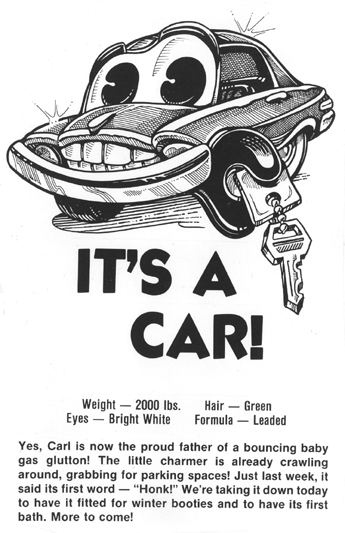
After a day of recovery, it was time to drive back home. Lee had gone separately to NYC to visit her sister, and I had offered her a ride back. It’s hard to convey (hard to even remember) how we communicated and got around in the days before smartphones and GPS. Even answering machines weren’t common yet. Getting hold of people required actually catching them at home or work. Finding addresses required being able to follow paper maps while driving. Now, I marvel at the insane levels of confidence I possessed for this journey – first, driving from Syracuse to a friend’s house on Long Island, where I had never ventured before (and where, because it was impossible to communicate en route to anywhere, I got to wait somewhat uncomfortably with her parents for a couple of hours before she showed up); then, driving from Long Island to Alphabet City in Manhattan. I had to park my car near vacant lots that hosted permanent barrel fires in those days, and climb up a stairway that had been painted to resemble nothing so much as blood spatters in order to find Lee at her sister’s apartment. Then we had a 10-hour drive back home on roads I’d never driven before, in a car that had developed a serious oil leak, while a blizzard descended on the region, leaving us with no visibility beyond. I stayed tucked in behind tractor-trailers in hopes that if they stayed on the road, we would too.
Somehow, in all the stress of that drive, we were having a good time. I had an iron grip on the steering wheel as my rear-wheel drive car fishtailed up Route 17, and then finally I-81 – and yet, we were laughing and joking. When we finally got safely back to Syracuse, we enjoyed a late dinner at a nice restaurant near campus, and were charming and lovely to each other. We found each other again. I still remember how sweet and happy and good she looked that night. I asked if she’d think about trying again. She did. We did.
Danny came back (having missed our entire breakup), and we had a great spring. I was still doing well in school, still engaged. There was new music, new adventures – with a car, we could get around to more distant clubs in the city and see even more of our favorite bands. But I was still very much burning the candle at both ends, and there was some intense drama, not of our making, that stressed us all out for several months that spring. Our fourth roommate would graduate and move on, but the three of us would stay at 163B for a second year, finishing up our college years. Lee and I were there on our own for the summer, when again I worked full-time, but there was time for swimming and Syracuse Chiefs games, little road trips around Central New York, and lots and lots of bands. We had a lovely time.
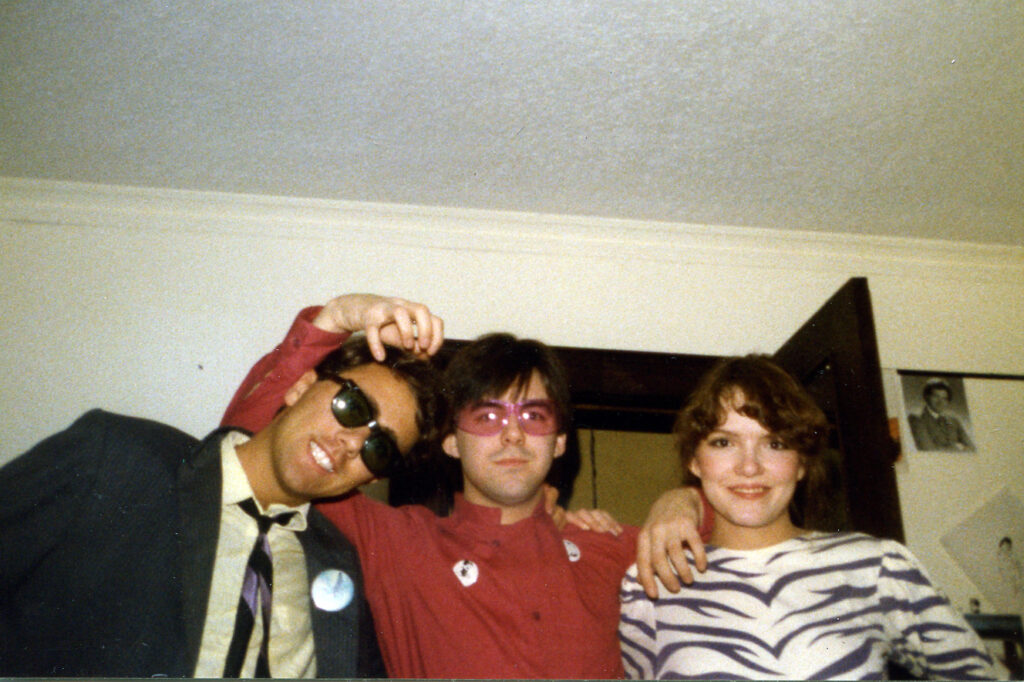
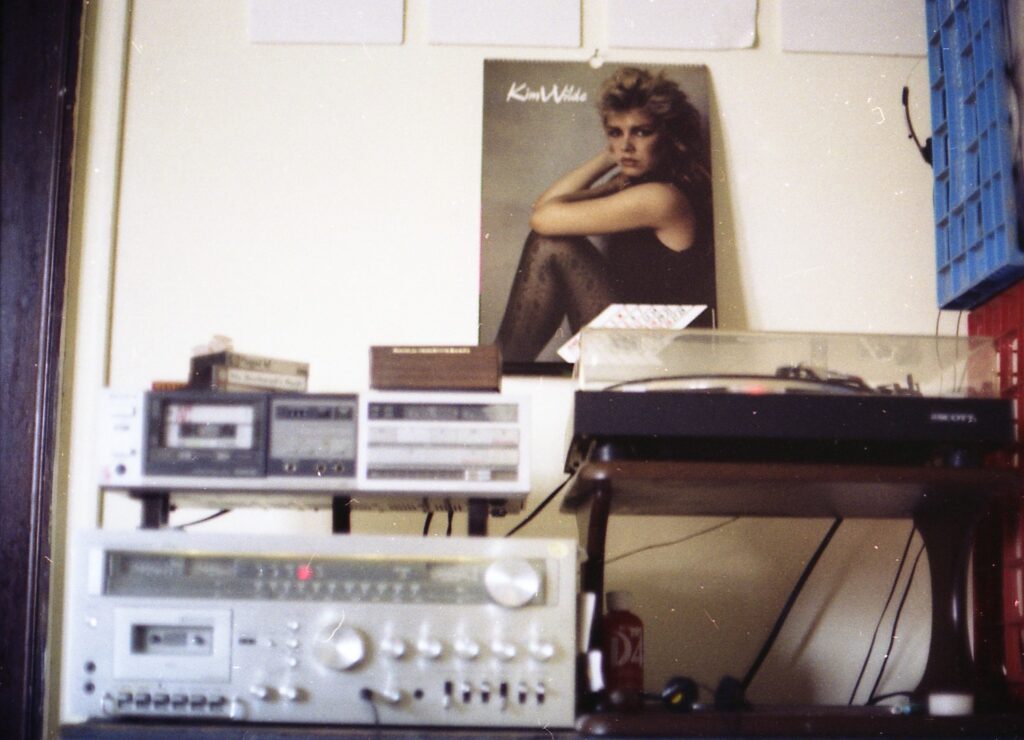
The Final Year
Danny’s architecture program had always been a five-year program. Lee, by virtue of having changed her major, had long expected to take five years to finish as well. Between my semester off and credits lost to pneumonia back in sophomore year, I had to finish about four classes, and since I was in no hurry, I spread them out across the 1982/83 academic year, taking only two classes each semester, continuing to work a heavy schedule.
That fall, as we started our final year, the darkness came back. In retrospect, this is unsurprising, because I recognize that I had done absolutely nothing to address whatever was driving my problems. I didn’t seek any type of treatment, didn’t make any improvements or changes in behavior. I just felt better, until I didn’t. After months of moderation, my drinking got heavy again, and constant. In November, we hosted a debauched “Friendsgiving” that resulted in a large group of us drunkenly strolling through Oakwood Cemetery on an unseasonably warm November night. That weekend, a situation that isn’t mine to write about became part of the mix , resulting in a new presence and personal tensions that would later define the year and, for some of the group, their entire lives.
After that night, my drinking went hard again. In between blather about our obsession with MTV and reruns of “Leave it To Beaver” and “The Twilight Zone,” which resulted from our splurging on cable TV that fall, my diaries from that time are filled with talk about depression – yet in later years, I would swear I never suffered from it. They’re filled with desperation about my drinking as well, and my frequent, unsuccessful efforts to quit. Never a good sleeper, I began truly abusing my body, essentially not going to sleep until I had no choice – but then having to get up just a few hours later for class or work. I felt constantly awful. Sleep would have been the solution, but I would not sleep. It was more important to drink.
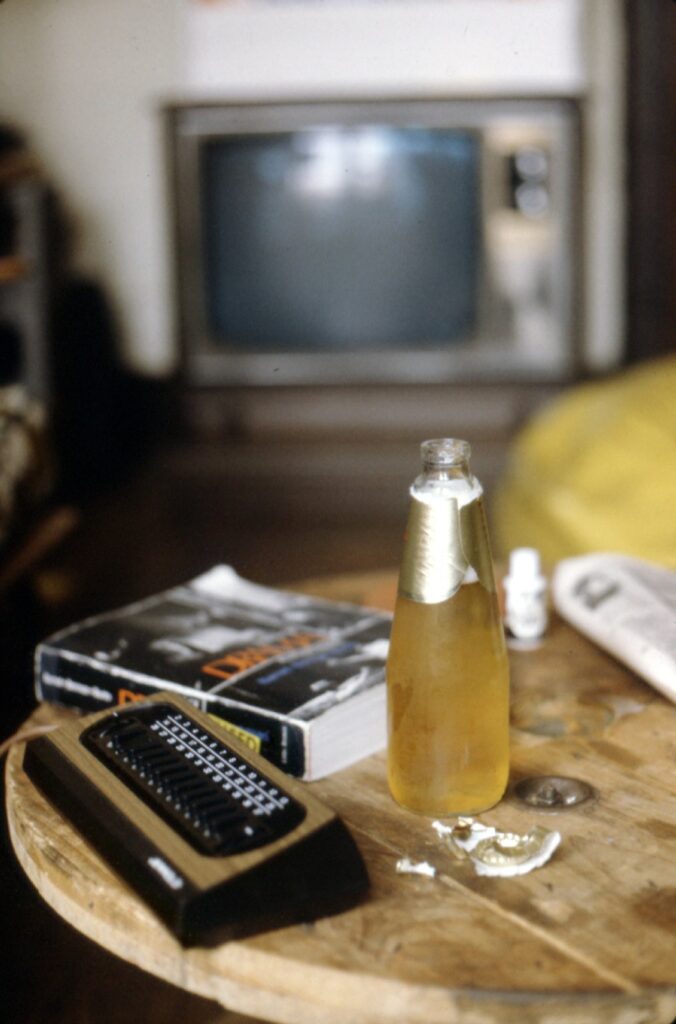
Looking for Direction
I was actively trying to figure out what I would do with my life – I wasn’t just drinking about it. I mostly succeeded in ruling things out. Something I wrote for Report caught the attention of an editor who wanted to submit it to a college humor anthology. Given my love of comedy and how it had been a major creative outlet for me, it would have made sense for me to pursue that avenue. But as a career, it seemed like options were limited. National Lampoon was seriously on the wane, and there weren’t many other outlets for written comedy. Writing for TV held no interest. And there was a part of me that thought I could be something more serious than a comedy writer. After thinking about it, I asked her not to submit my work.
Creative writing appealed to me, and there had been a point early in my panic when I thought about SU’s creative writing program. At the time, it was highly regarded, with Tess Gallagher as director and Raymond Carver and Tobias Wolff as the shining lights. But it was a tough program to get into, I’d have lost my scholarship, and I think it wasn’t possible to just take the classes without being in the program. Still, being a fiction writer was an idea I carried for quite a long time.
In my final semester, I took a prose writing class taught by a moderately successful novelist, which really sparked the idea that I might become a serious writer. I submitted a very short story about an entangled couple, raw and emotional, which got an amazing reaction from both teacher and class. It resonated because it was real – I had essentially just captured some fights I’d had with Lee, rearranged the circumstances, and pared it down to the bare emotions. (I hope it doesn’t exist anymore – I don’t want to remember.) My next effort, a rambling attempt at something like a saleable detective story, brought only confused reactions – I was asked why I would do genre work when I was capable of what I had done before. And there I learned something I’ve since heard many times from and about successful writers – if I were going to write with integrity from my own life, I’d have to be willing to make everyone I was writing about unhappy. That wasn’t in my nature. While I continued to try writing short stories for the next several years, one or two of which I still rather like, that clearly wasn’t going to be my career direction.
Down The Drain
Graduation was looming. In addition to not knowing what to do professionally, I didn’t know what to do personally. Lee and I had to decide to be together or to be apart. I couldn’t imagine a future without her, but I was riddled with doubts about whether I could be the person she deserved, and at times I found myself pulling away from her, fearful I was going to fuck it all up. Academically, though I was taking a particularly undemanding courseload, that second wind I had enjoyed the previous year was gone. For the first time, I was going to my night classes with a little buzz on – I didn’t know how to get through otherwise.
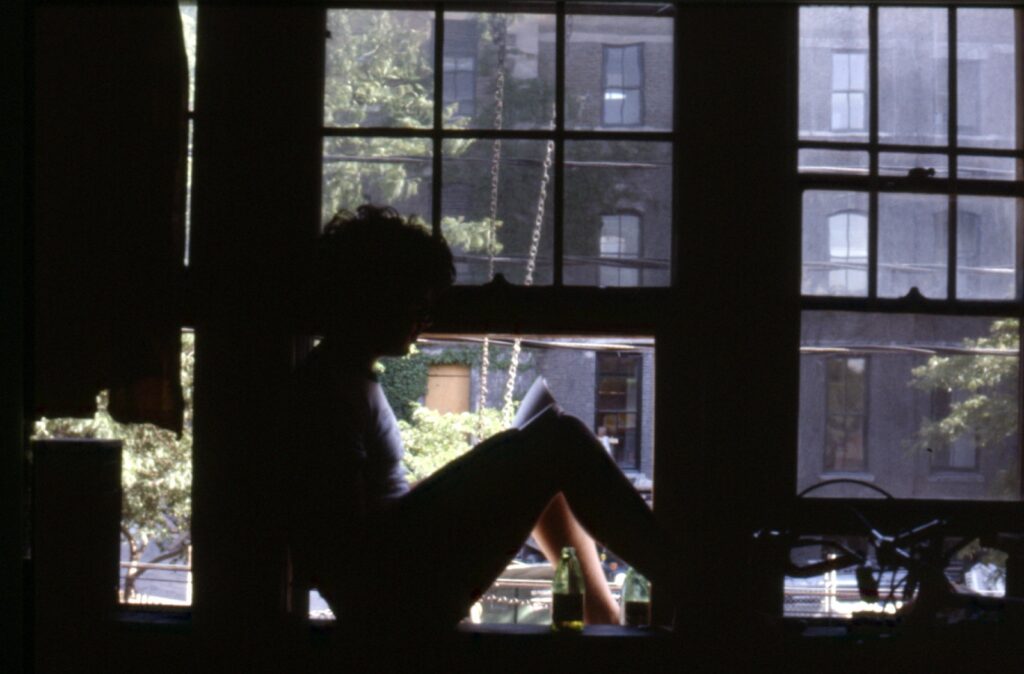
I can read the journals I wrote sitting in the window of that apartment, looking down on the people on the street below, and it’s all there. I knew I was depressed, but had no idea what to do about it. I desperately wanted to stop drinking, and had no idea how (one of our friends used to say the difference between us and alcoholics was that we didn’t go to meetings. Perhaps there was a clue in that joke?). I was bitterly angry that so much promise, so much potential, was now squandered, and I had no idea what my future could be, or where it could be.
Doing my requirements check for graduation, I was advised that a barely passing grade in one of my required classes was not going to be sufficient. Ironically enough, it was a news-writing class that I should have passed easily, but had treated with contempt, so the outcome was no surprise, and neither was my decision not to retake the class. I simply wouldn’t graduate.
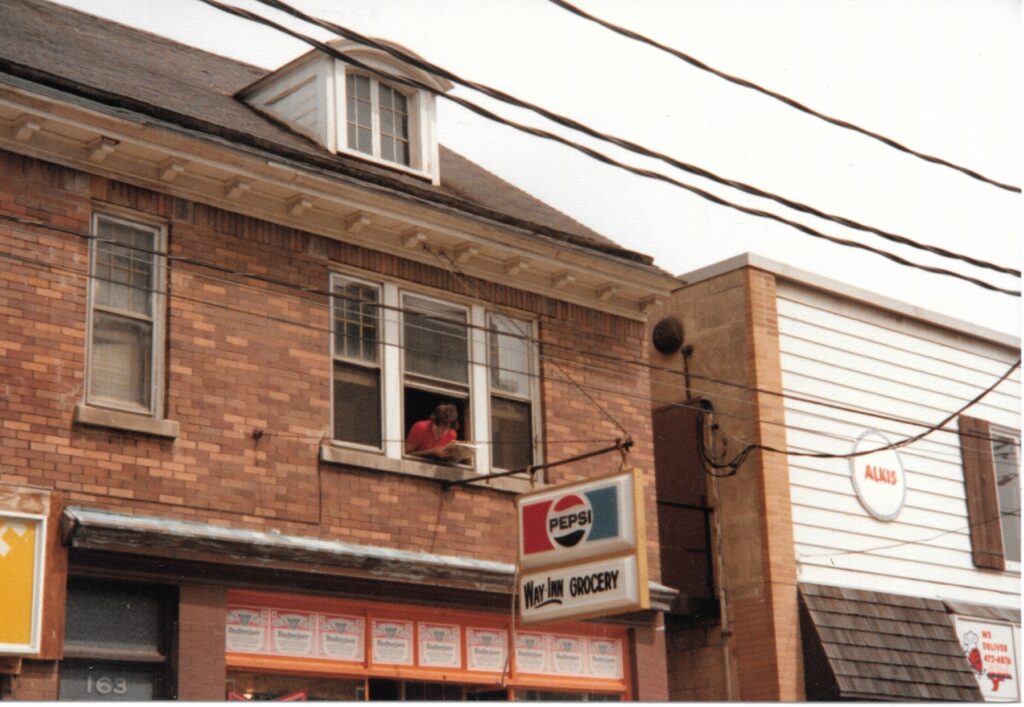
That was it. I was done. All this effort, all these setbacks and comebacks, all the extra time and money and struggles, so much of which took place there at 163B, and I wasn’t going to graduate. While my roommates prepared for commencement and family visits and all that comes with it, I went into a profound drunken sulk. At that point, the line from “Animal House,” “Seven years of college down the drain,” really resonated.
Life-altering events for others within our group occurred just before and just after graduation – one being a terrible auto accident – that also put a serious damper on my spirits at the time. These, too, are not my stories to tell, but they were tremendous shocks.
Despite all that, Lee and I had made the commitment, the decision to get married, and we were genuinely excited about it. I would work full-time at the printing plant, and she found work at an ad agency downtown. After a bit of a sulk about my utter failure, we had a future to look forward to, and we needed to do that in a new location. It was time to leave University Hill.
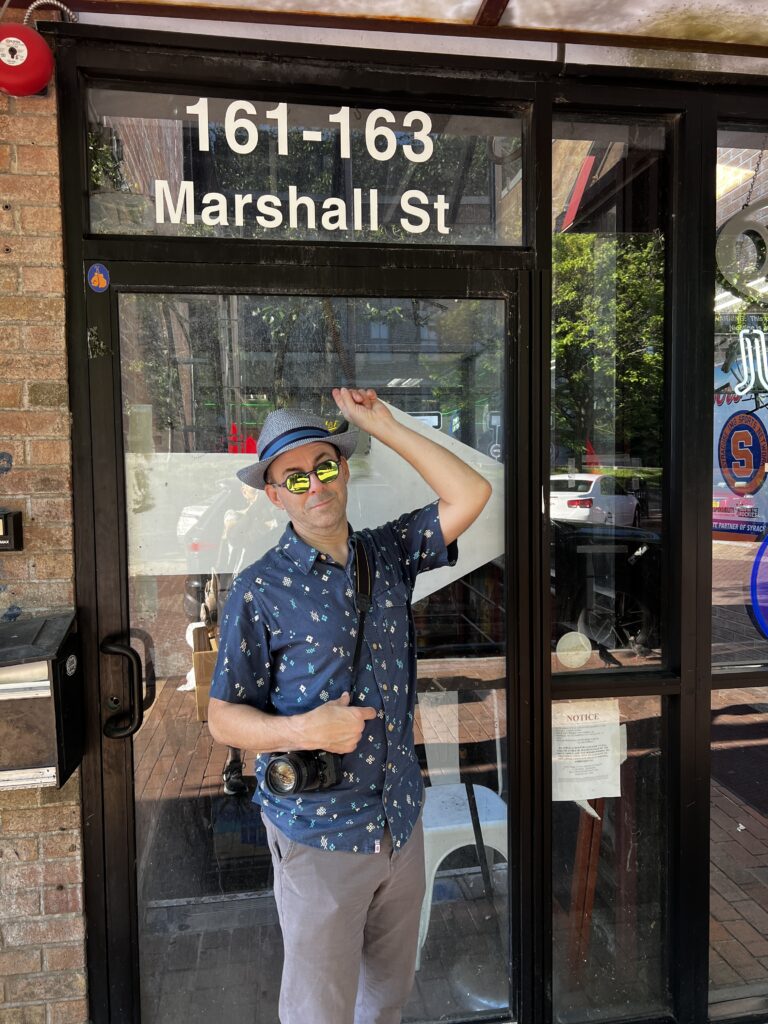
A Marshall Street postscript
For anyone who attended Syracuse University, M Street was a central part of the college experience. While there have been some changes in the vicinity in recent years, it’s surprising how much of the ramshackle streetscape is unchanged from all those years ago. True, hardly any of the businesses are the same, and “The Beach” was essentially eliminated a few years back, but it’s still recognizably M Street. Unfortunately, I didn’t think to shoot any streetscapes, but, ya know, there’s StreetView.
We were amazed to learn that a shoe store, of all things – J. Michael shoes – has somehow survived all this time. We spoke with the proprietor, who said he was the third generation!
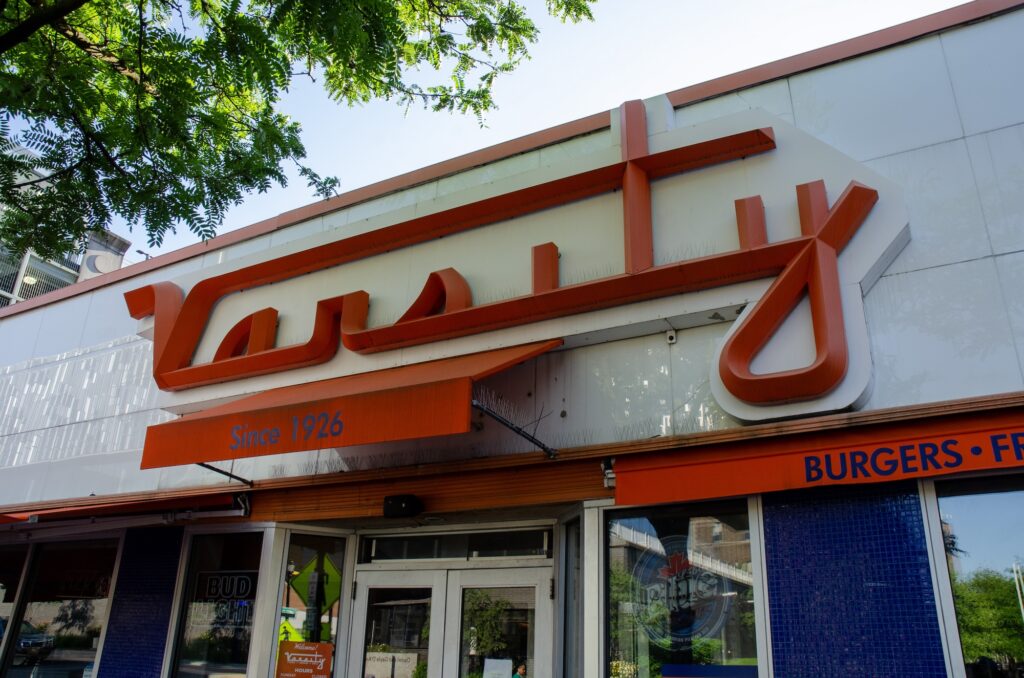
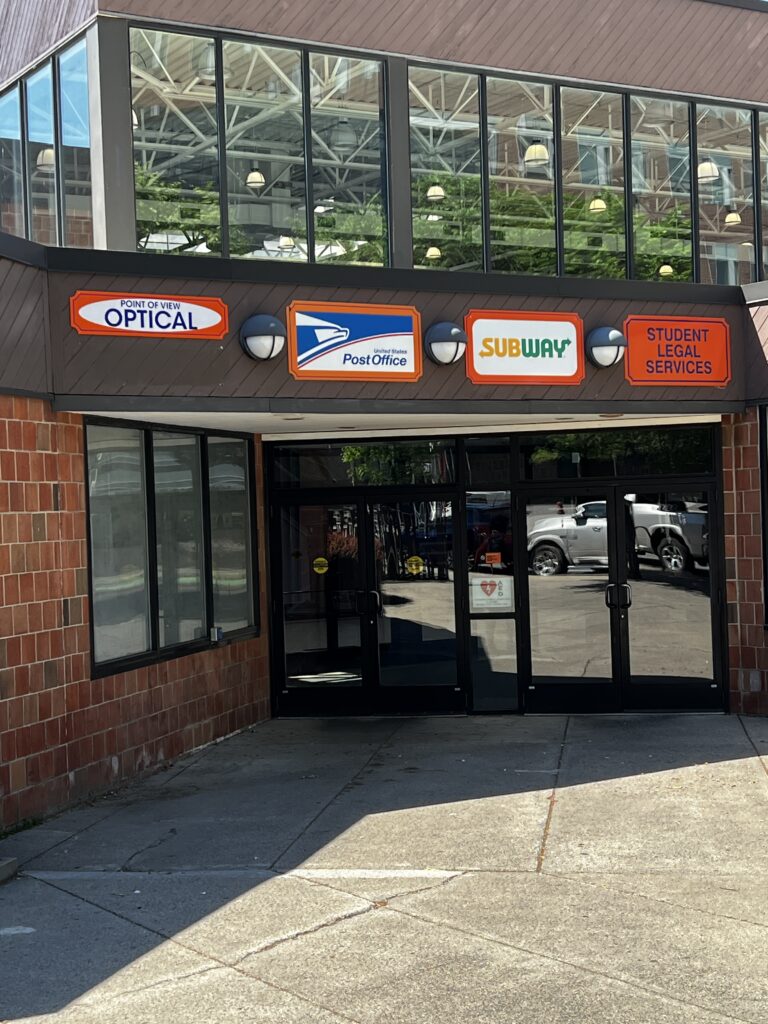
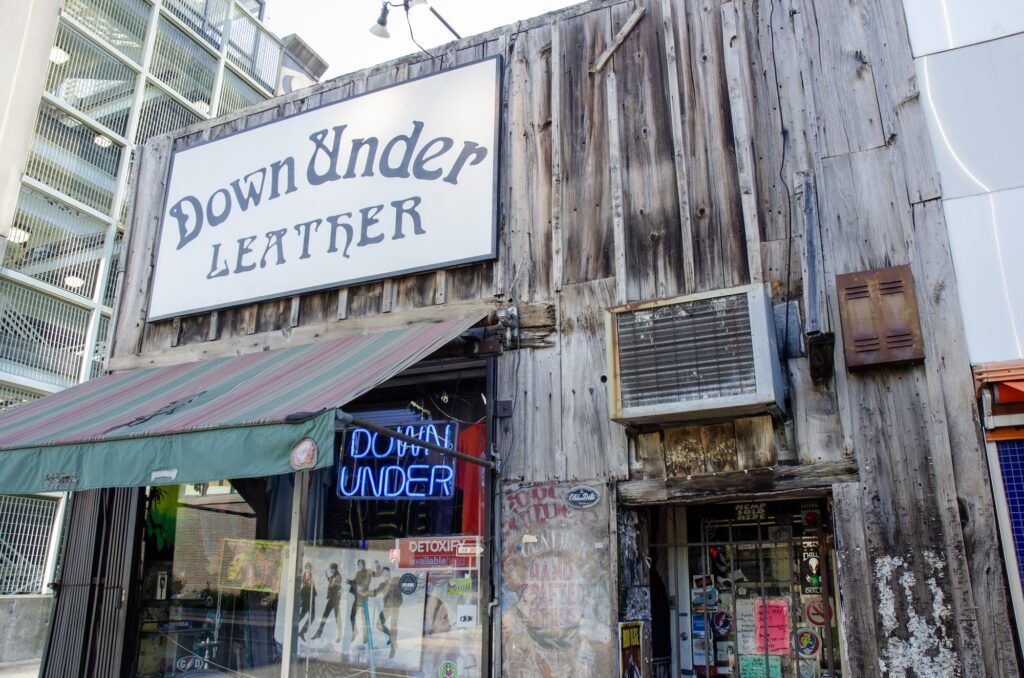
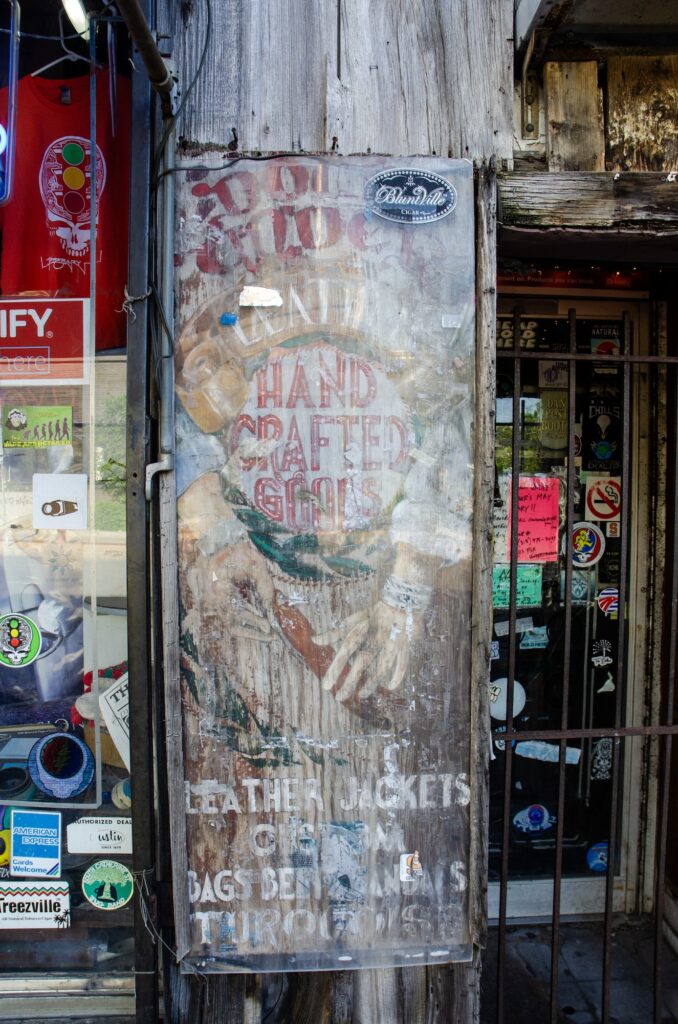
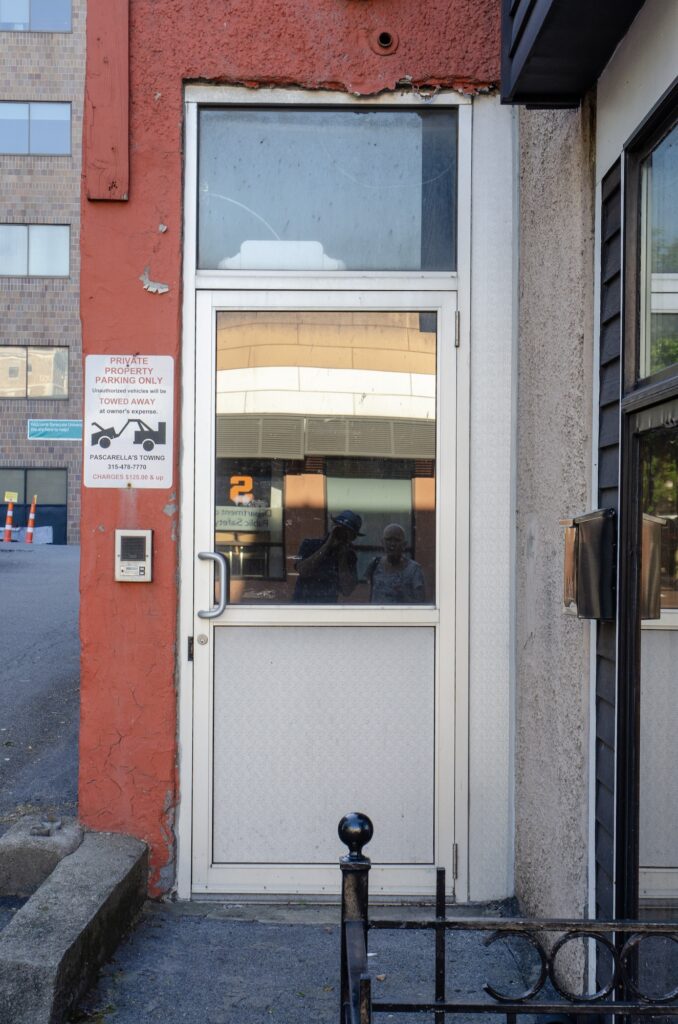

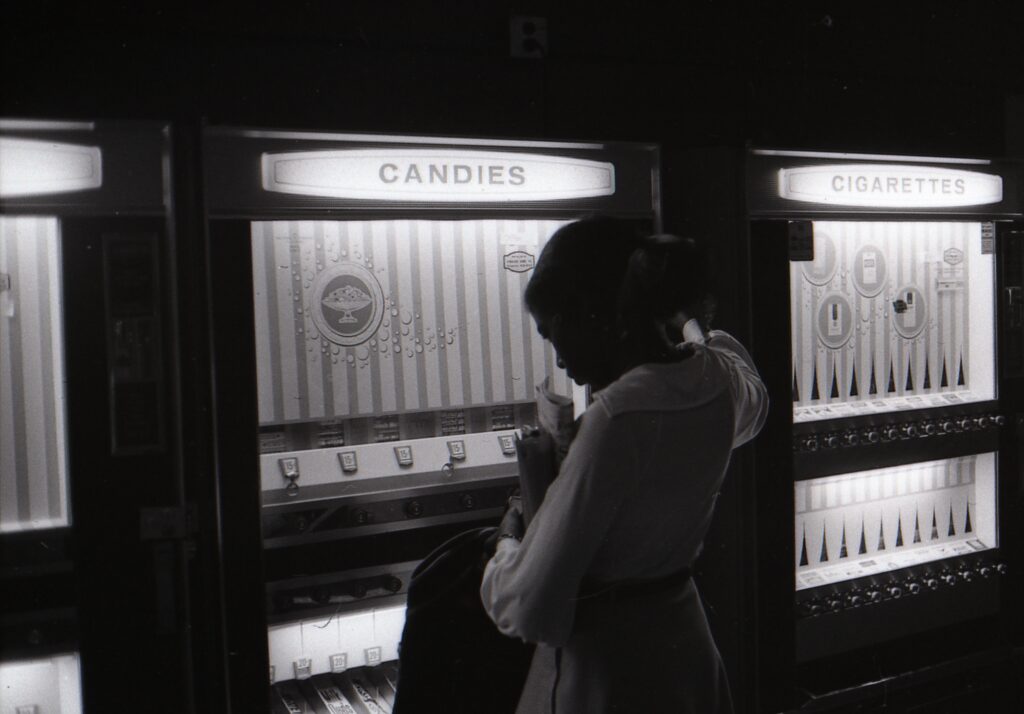
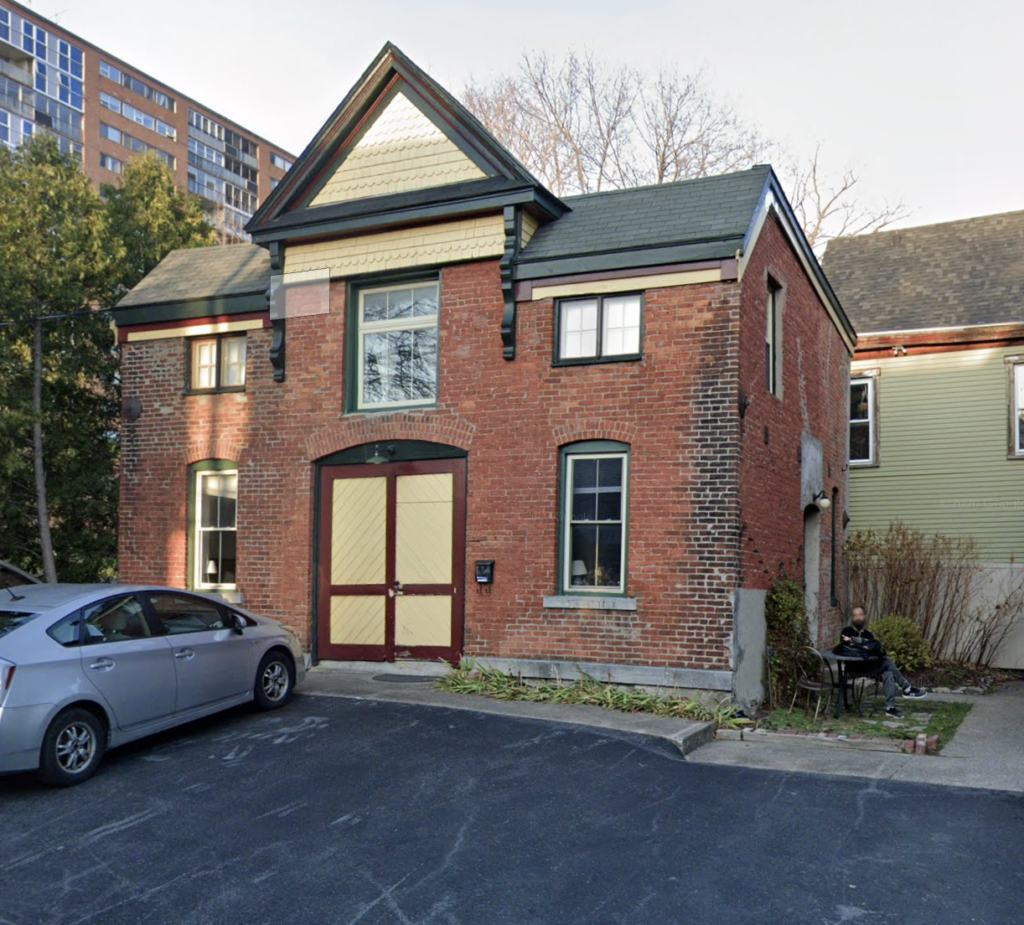
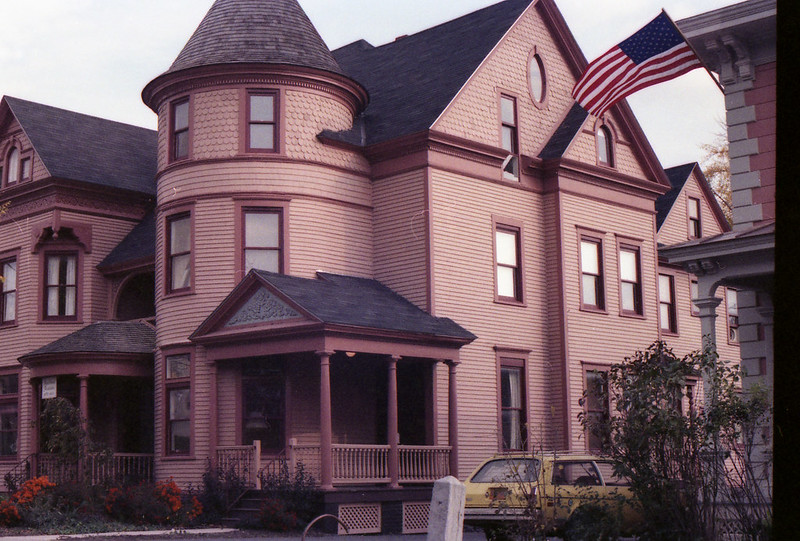
I particularly liked this entry and can certainly relate. Your descriptions created a physical reaction in myself, a flash back of sorts. I’m grateful those days are over. Thanks, Carl.
Me too. It’s hard to convey just how physically heavy that hopelessness, that lack of direction, felt. Glad you liked it!